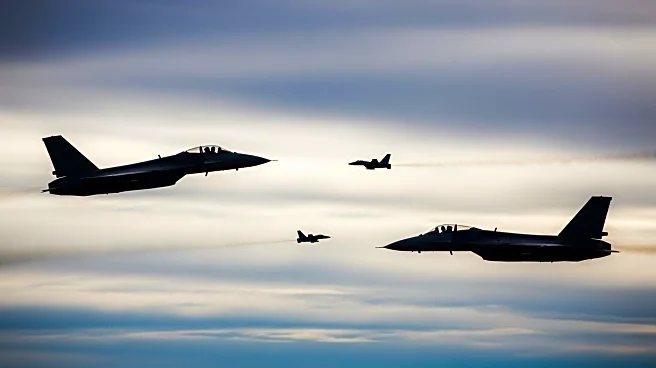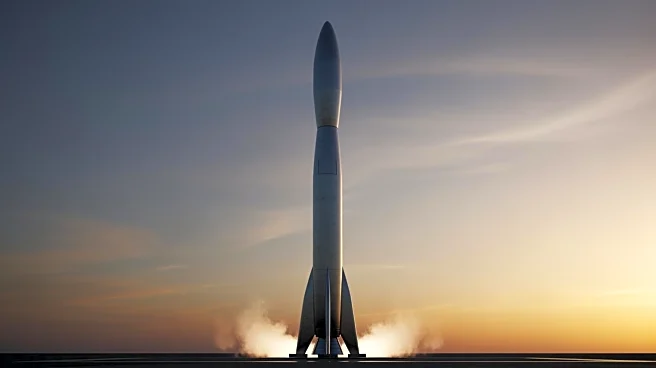What's Happening?
A Canadian military aircraft, the CP-140 Aurora, was intercepted by Chinese fighter jets while conducting a mission over the East China Sea. The mission, known as Operation NEON, is part of a multinational effort to enforce United Nations sanctions against North Korea. The Canadian plane was tasked with tracking North Korean vessels suspected of engaging in illicit trade that violates these sanctions. During the operation, the Aurora was approached by a Chinese supersonic fighter jet, which flew within 200 feet of the Canadian aircraft. Despite the close encounter, the Canadian crew continued their mission, documenting suspicious vessels and sharing intelligence with the United Nations' Enforcement Coordination Cell. The mission is based out of Kadena Air Base in Japan, a strategic U.S. Air Force base in the Asia-Pacific region.
Why It's Important?
This incident highlights the ongoing tensions in the Asia-Pacific region, particularly concerning North Korea's nuclear ambitions and the enforcement of international sanctions. China's interception of the Canadian aircraft underscores Beijing's protective stance towards North Korea, which it has supported economically despite international sanctions. The close proximity of the Chinese jets to the Canadian plane raises safety concerns and reflects the geopolitical complexities in enforcing sanctions against North Korea. The mission's success is crucial for maintaining pressure on Pyongyang to curb its nuclear weapons program, which poses a significant threat to regional and global security. The involvement of multiple nations in Operation NEON demonstrates a collective effort to uphold international law and deter North Korea's nuclear proliferation.
What's Next?
The continuation of Operation NEON is expected, with Canadian and other international forces likely to persist in their efforts to monitor and report on North Korean activities. The close encounters with Chinese jets may prompt diplomatic discussions between Canada and China to address safety concerns and ensure the mission's objectives are met without escalating tensions. Additionally, the international community may seek to reinforce the sanctions regime against North Korea, potentially involving further diplomatic negotiations or adjustments to enforcement strategies. The situation remains dynamic, with potential implications for U.S. foreign policy and international relations in the region.









